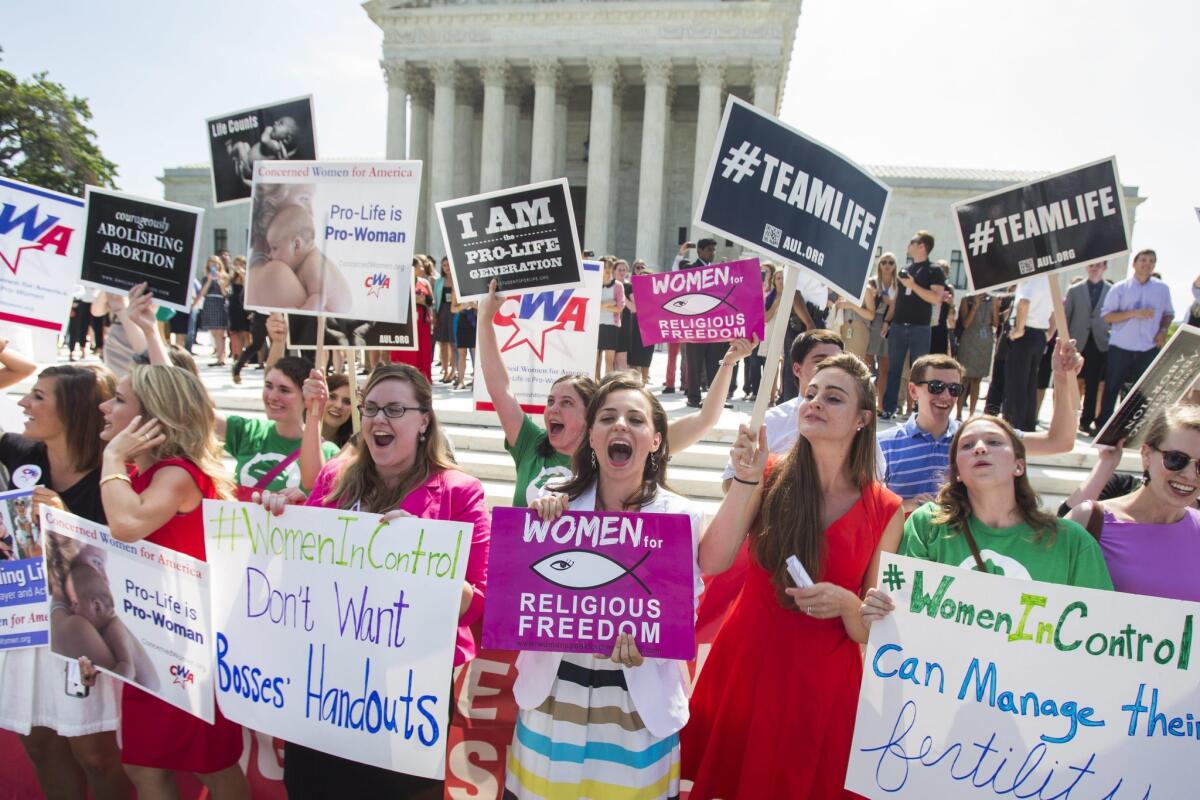Editorial: Hobby Lobby ruling: Bad for women’s rights, bad for the Religious Freedom Restoration Act

- Share via
In ruling 5 to 4 that “closely held” companies can refuse on religious grounds to include contraceptives in their employees’ health plans, the Supreme Court has needlessly interfered with an important provision of the Affordable Care Act. And it has done more than that.
The specious reasoning in Justice Samuel A. Alito Jr.’s majority opinion could embolden employers to assert a “religious” right to deny other health benefits to their employees — from immunization to blood transfusions to psychotherapy — or to discriminate in other ways. And by stretching the meaning of a law intended to protect individuals, the decision threatens to fracture what has been a bipartisan support for reasonable accommodation of religious beliefs.
Under regulations designed to implement the healthcare law, companies that provide health insurance for their employees must offer, without a co-pay, certain kinds of preventive care, including contraceptives for women. Hobby Lobby, a chain of craft stores, and two other family-owned businesses claimed that the regulations required them to cover forms of contraception that the owners regarded as equivalent to abortion and thus offensive to their faith.
A 1993 federal law, the Religious Freedom Restoration Act, allows a person to opt out of a generally applicable law under some circumstances if obeying it would “substantially burden” the exercise of his or her religion. Alito held, unpersuasively, that Hobby Lobby and the other companies qualified as “persons” and, even more absurdly, that making contraception available to employees who would make their own reproductive decisions was a “substantial burden” on the religious freedom of employers.
Bad as it is, the decision could have been worse. The protection it offers is limited to “closely held” companies, sparing the courts from having to determine the religious beliefs of large companies with multiple shareholders and officers. And Alito held out the possibility that employees of companies such as Hobby Lobby might receive contraceptives under arrangements similar to those Obama has offered to religious colleges and hospitals with objections to birth control. In those cases, the cost of contraceptive coverage is absorbed by the insurance company or a third-party administrator.
Alito also insisted that the decision didn’t establish a general principle that a company could get around an insurance mandate by lodging a religious objection. But the logic of the decision would seem to cover a wide range of medical services that might offend Jehovah’s Witnesses, Christian Scientists and adherents of other faiths.
Beyond the harm it does to women’s access to birth control, this ruling undoes the political consensus that led to the enactment of the Religious Freedom Restoration Act. Battle lines will soon be forming around whether the law should be amended or even repealed. That’s a lot of damage from one misguided decision.
More to Read
A cure for the common opinion
Get thought-provoking perspectives with our weekly newsletter.
You may occasionally receive promotional content from the Los Angeles Times.









